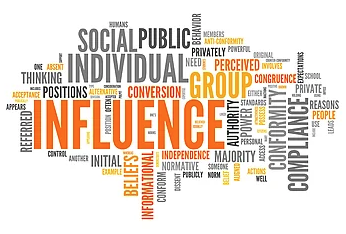
In the 1920s, they were called public relations or press agents. Today they call themselves social media influencers. GROUCHO says:
Press Agents, I Have Known. The fellow has been a circus press agent and can't forget his early training. No weather is too bad for him to lead you out to Central Park to be photographed with the animals. https://www.newyorker.com/magazine/1929/03/09/press-agents-i-have-known…
An influencer has been used in English since the mid-1600s, though it wasn't a job title back then. In recent years, the term has become a catch-all for a specific career track at the center of a burgeoning but profitable industry.
As influencer continues to expand in English and pull new terms and meanings into their orbit, it is worthy of charting from a linguistic perspective.
For most of its existence in the language, influencer was used broadly to refer to someone or something with the power to alter individuals' beliefs and, as a result, impact the course of events. But, when the earlier term influence entered English, it was used to move heavenly spheres, particularly in astrology.
Styling themselves as the sages of our era, many influencers today might approve of influence's early mystical connotations, though interest in astrology is not required for the job. Modern influencers exercise their power in the less ethereal realm of social media, often strategically and for profit. And profit they do.
Influencers, who typically boast a devoted and engaged following on their social media platform of choice, are a boon for big brands who want to get their products in front of receptive audiences more seamlessly and contextually than traditional advertising. The result is a booming industry: influencer marketing could be worth $10 billion.
Unsurprisingly, many variations on the influencer theme, such as thought leaders, influencers, micro-influencers, and even nano-influencers, now vie for attention and sway on our social feeds.
Before 2016, there was no definition for the term influencer on Dictionary.com. The term existed, of course, but before 2016, influencer culture as we now know it was only emerging. This is reflected in searches for the term influencer on Google; interest began in late 2015 and has steadily risen over the last few years.